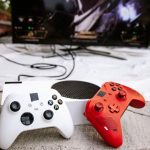Nintendo has updated its user agreement to allow for more stringent measures against users who violate the terms of service. This update comes shortly before the anticipated release of the Switch 2. Highlighting some significant changes, Nintendo reserves the right to make devices inoperative if their terms are breached. Many believe the timing of this update aims to cement control over how their hardware is used and counter modding or emulation activities. The revamped policy presents a more restrictive approach, impacting user rights concerning console modifications and emulation, topics long standing in the gaming community as points of contention.
Nintendo has a legacy of staunchly protecting its intellectual property, often resorting to legal measures against unauthorized uses of its systems or software. Emulation has long been a thorn in Nintendo’s side, as enthusiasts have often turned to these methods seeking better performance or extended usability of older games. Over the years, while technological advancements presented alternate gaming options, Nintendo’s policies have continuously tried to curb such practices, reflecting a persistent effort to uphold its proprietary stance. Historically, such updates have consistently revealed Nintendo’s focus to safeguard its ecosystem, albeit often at the expense of user flexibility.
Why Did Nintendo Revise The Agreement?
The recent amendment appears to be a strategic attempt by Nintendo to tighten its grip on preventing unauthorized modifications to its systems. Concerns have been raised about the possibility of legitimate users being wrongly targeted under the guise of rule enforcement. This decision reflects an ongoing struggle within several gaming companies facing the rising influence of PC-based gaming and emulation, which provide alternatives to native console experiences.
Is Device Modification Now Off-limits?
Nintendo’s updated agreement now explicitly forbids users from altering their devices in ways not approved by the company. This includes any efforts to modify software or firmware, activities often associated with enabling additional features or improving game performance. Restrictions extend to curbing any actions that deviate from intended device usage, focusing on upholding Nintendo’s envisioned user experience.
What Are User Concerns About These Changes?
Many users express unease with the newfound power Nintendo holds over their purchased devices, notably the potential for false positive detections leading to bricked consoles. The inability to mod hardware or games frustrates consumers who believe in the freedom to modify purchased products. For many, the adaptation towards subscription models and the lack of ownership rights over digital purchases only exacerbates concerns over consumer limitations.
These terms suggest Nintendo’s strategy in dealing with unauthorized usage and protecting intellectual property while facing increasing competition. As the console market becomes more competitive with entrants providing alternative devices and services, Nintendo’s policies may alienate some of its core fanbase. However, with the Switch’s success, the company confidently appears to be doubling down on its existing strategy while prioritizing software sales and control over its gaming ecosystem.










